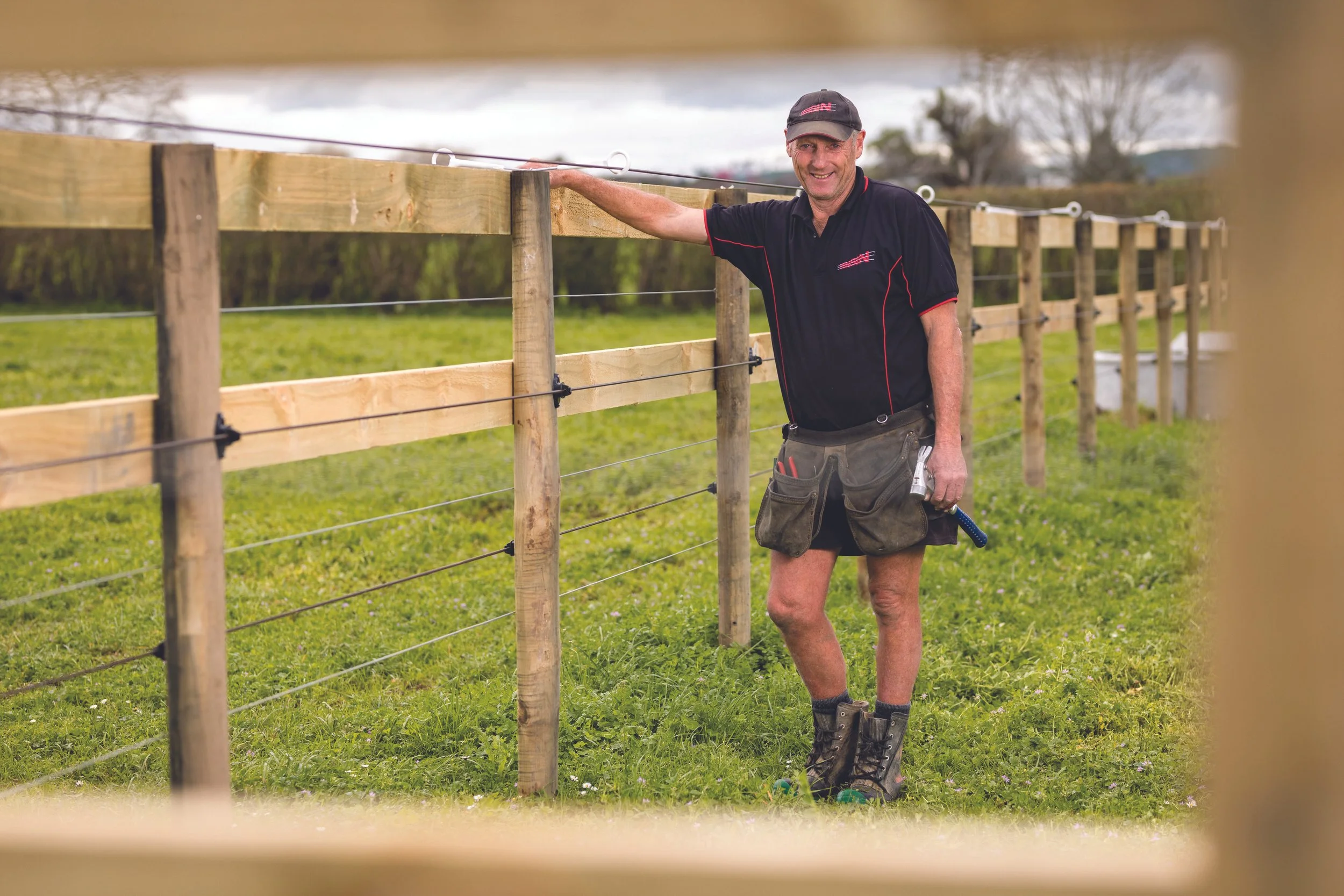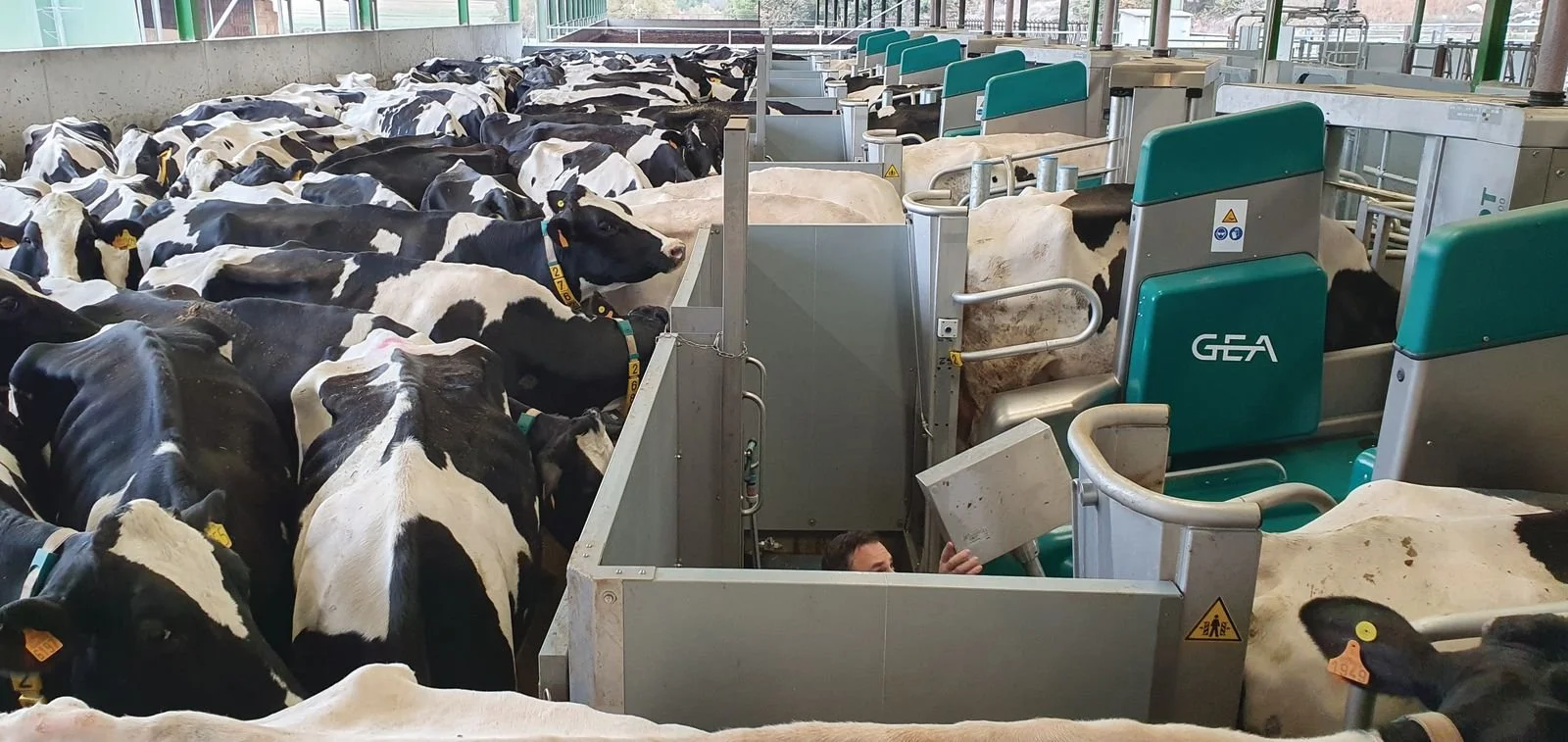Equine fencing – where behaviour leads the way
Fencing for horses is not just about strength, durability or aesthetics; it’s about understanding the animal behind the fence.
Simple, effective philosophy drives deer success
Nearly 50 years ago, Stu Stokes was introduced to deer farming by his father Bruce, and it’s fair to say the passion stuck.
Broader feed choice for the new season
From this winter farmers have more animal feed choice than ever before, now that Farmlands has bought animal nutrition manufacturer SealesWinslow.
DairyRobot makes New Zealand debut at Fieldays 2025
GEA Farm Technologies showcased its DairyRobot milking system at Fieldays 2025, giving New Zealand farmers their first opportunity to experience the future of pasture-based dairy automation in action.
Tech providers target management synergies
Gallagher Animal Management and Dutch company Nedap have teamed up in a partnership they say will help transform livestock management.
Milking It 2.0 is here
We often hear that one of the biggest challenges for dairy farmers is managing the financial side of the business.
Considerations for long acting parasite control in ewes pre-lamb
When it comes to managing internal parasites in sheep, especially during the critical pre-lambing period, farmers have several anthelmintic options.
In ideal conditions, ewes should enter pre-lamb at Body Condition Score (BCS) 3 with adequate feed and not require a drench. But if conditions are not ideal, a long-acting treatment may benefit some ewes.
Pure clover ups the ante in South Otago
Coaxing more out of an intensive system that’s already producing well can be easier said than done.
But strategic use of straight clover on Ashton Glen Farms at Clinton in South Otago is giving the Mitchell family a double win—extra kilograms of red meat per hectare, plus free soil nitrogen and better grass weed control for subsequent cereal crops.
Smart sensor tech no longer just for cows
Monitoring dairy herd replacements from birth has just got easier with the launch of SenseHub Youngstock. MSD Animal Health says.
Youngstock is the latest extension from SenseHub Dairy, the company’s market-leading technology used by hundreds of Kiwi dairy farmers to monitor cow health and mating management.
Rumen development key to weight gain
The goal of calf rearing is to produce a healthy calf that can grow at the required rate solely on a diet of grass as soon as possible.
Grass is cheaper than milk or meal and having a calf that can be weaned sooner reduces labour inputs, all making the rearing process less time consuming and more cost effective. Weaning calves sooner is all about developing the calf’s rumen.
The nuts and bolts of adding value to non-replacement calves
Strategic use of sexed cross-bred semen and beef semen, as well as low birthweight Hereford bulls, helped Dairy Trust Taranaki drop the number of bobby calves on one of its farms from 20 per cent to just five per cent last season.
Don’t wait until dry off
Words: Zoetis
Autumn is a critical time to address parasite control in cattle.
From spring through to autumn, young stock with low or no immunity are mass producers of parasite eggs which become infective larval stages, reaching a peak on pastures in autumn and early winter.
Even if young stock do not graze on the dairy platform, there will still be better survival and likely higher numbers of parasites in autumn.
Smarter farming together for better performance
A strategic partner and Ravensdown customer for more than a decade, Dairy Holdings utilises the full suite of Ravensdown’s offerings to support consistent improvements in on-farm performance.
Colin Glass, Dairy Holdings CEO, says a key to farming smarter is having an absolute view of all production inputs.
“Over the past five years alone, we have taken 6600 soil samples across Dairy Holding farms to be tested and analysed
by Ravensdown.
Fly control and biosecurity in equine environments
In stables, floats or trucks, it’s important to control moisture – this is where flies and disease breed.
Effective parasite management for equines
Equest Plus Tape horse wormer, containing the active ingredient moxidectin, is a widely used anthelmintic for controlling internal parasites in horses.















